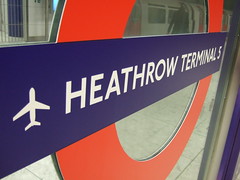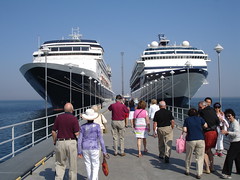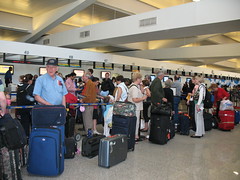Senior citizens may experience greater difficulty when they are traveling. They may not be able to perform physically demanding activities, and should be cautious when adventuring and be aware of health risk that they be inherently be more prone to than other travelers. Elderly travelers are frequently more susceptible to illnesses, which can be caused by adverse weather conditions, and unhygienic food, water or living conditions. It is more likely that they will need medical care when they are traveling. Since medical services can be costly in certain countries, and non-existent in others, it is essential for senior travelers to get insurance coverage for their trips.
Depending on the travel vendor, senior citizens may be eligible for discounts when they buy certain products/services, or visit different locations. Nevertheless, seniors do not get any discounts when they purchase travel insurance. In fact, a travel insurance policy for seniors is more costly than a standard travel policy, and some insurance agents and companies may not be willing to provide coverage for senior travel. Insurance companies are wary of offering senior traveler policies because they may be an increased chance that the company will need to payout for insurance benefits if the traveler falls ill or is injured while traveling.
Senior travelers are rarely eligible for standard travel insurance. Instead, senior travelers should apply for a senior travel insurance policy that cater to their specific needs and desired coverage. This type of policy can be bought from insurance companies and specialized travel insurance providers. The rate and level of coverage of the policy are dependent on the age and health of the applicants. Usually, it is more expensive for older travelers to get insurance coverage for their vacations. Typically, a senior travel insurance policy will cover medical costs for illnesses that are developed during travel, loss of baggage by airline, cancellation of trip and hotel reservation, and accidental death.
Senior travelers who are suffering from diabetes, hypertension, heart diseases, arthritis, high cholesterol, stroke, and other medical conditions have to apply for coverage for pre-existing medical conditions. Many travelers with pre-existing conditions find it difficult to get approval for travel insurance, but some insurance companies have special policies for them. These policies are tailor-made to meet the insurance needs of seniors with existing health problems, and they cover recurrence of pre-existing conditions, emergency medical evacuation, and possibly loss or damage of mobility aids.
In order to find the best travel insurance deal, you should do some comparison shopping on the Internet. Compare the quotes and features of policies from a few different companies, and then decide which policy is most suitable for you. Make sure that the insurance company you choose is reliable and has a good reputation for claims handling.








